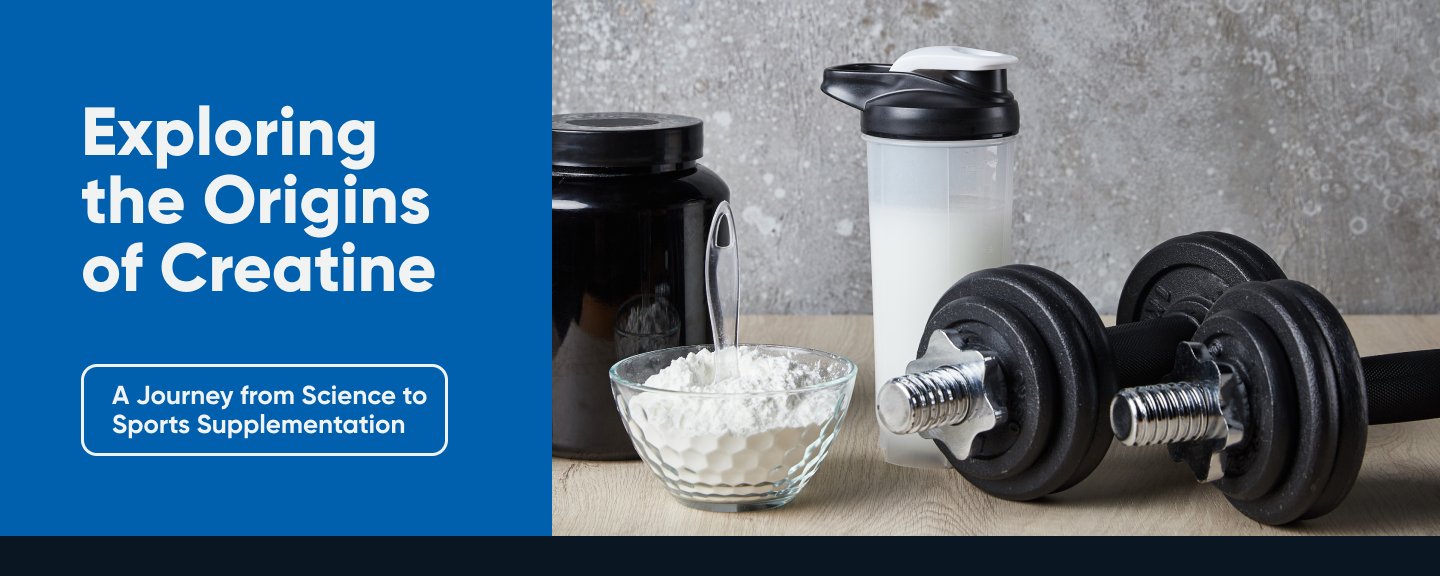Exploring the Origins of Creatine: A Journey from Science to Sports Supplementation

Creatine, a ubiquitous compound in the realm of sports nutrition and fitness, has a history that stretches far beyond its modern use as a performance-enhancing supplement. From its discovery to its widespread adoption by athletes worldwide, the origins of creatine are rooted in scientific inquiry and physiological exploration.

The Discovery:
The story of creatine begins in the early 19th century when French chemist Michel Eugène Chevreul first isolated creatine from meat extracts in 1832. Initially dubbed "creatine" from the Greek word "kreas," meaning flesh, its existence in animal tissue sparked curiosity among scientists about its role in physiology.
However, it wasn't until the latter half of the 20th century that researchers began unraveling the physiological significance of creatine. In the 1920s, scientists identified creatine phosphate (phosphocreatine) as a crucial energy source in muscle cells, particularly during short bursts of high-intensity activity.
Scientific Exploration:
Throughout the mid-20th century, scientists delved deeper into the mechanisms of creatine metabolism and its role in energy production. In the 1960s, pioneering research by Dr. Roger Harris and his colleagues at the University of Oxford shed light on the ergogenic properties of creatine supplementation.
Dr. Harris's groundbreaking studies demonstrated that oral creatine supplementation could significantly elevate muscle creatine levels, leading to enhanced performance in short-term, high-intensity activities such as weightlifting and sprinting. This research laid the foundation for creatine's emergence as a potent sports supplement.
Rise to Prominence:
By the late 20th century, creatine had garnered widespread attention within the sports and fitness communities. Athletes seeking a competitive edge began incorporating creatine supplementation into their training regimens, drawn by its purported ability to increase strength, power, and muscle mass.
The 1990s witnessed a surge in creatine research and product development, with numerous studies corroborating its performance-enhancing effects. Professional athletes across various sports embraced creatine as a legal and relatively safe means of improving athletic performance, further fueling its popularity.
Sports Supplementation:
Today, creatine stands as one of the most extensively researched and widely used sports supplements worldwide. Its efficacy in enhancing strength, power, and muscle gains has been validated by countless scientific studies, cementing its status as a staple in the arsenals of athletes, bodybuilders, and fitness enthusiasts alike.
Creatine supplementation works by increasing intramuscular stores of phosphocreatine, thereby enhancing the resynthesis of ATP during short bursts of intense exercise. This, in turn, prolongs muscular endurance, accelerates recovery, and facilitates greater training volume, ultimately leading to improvements in performance and muscle hypertrophy.
Conclusion:
The journey of creatine from its discovery in the 19th century to its status as a cornerstone of sports supplementation represents a fascinating intersection of scientific inquiry, physiological understanding, and athletic performance enhancement. What began as a curiosity in the laboratories of early chemists has evolved into a powerhouse supplement that continues to shape the landscape of sports nutrition and fitness.
As research into creatine metabolism and its effects on human performance continues, it's clear that this remarkable compound will remain a subject of fascination and exploration for scientists, athletes, and health enthusiasts alike. Whether you're a competitive athlete or a casual gym-goer, the story of creatine serves as a testament to the enduring quest for excellence and the relentless pursuit of human potential in sports and fitness.
Featured Products












